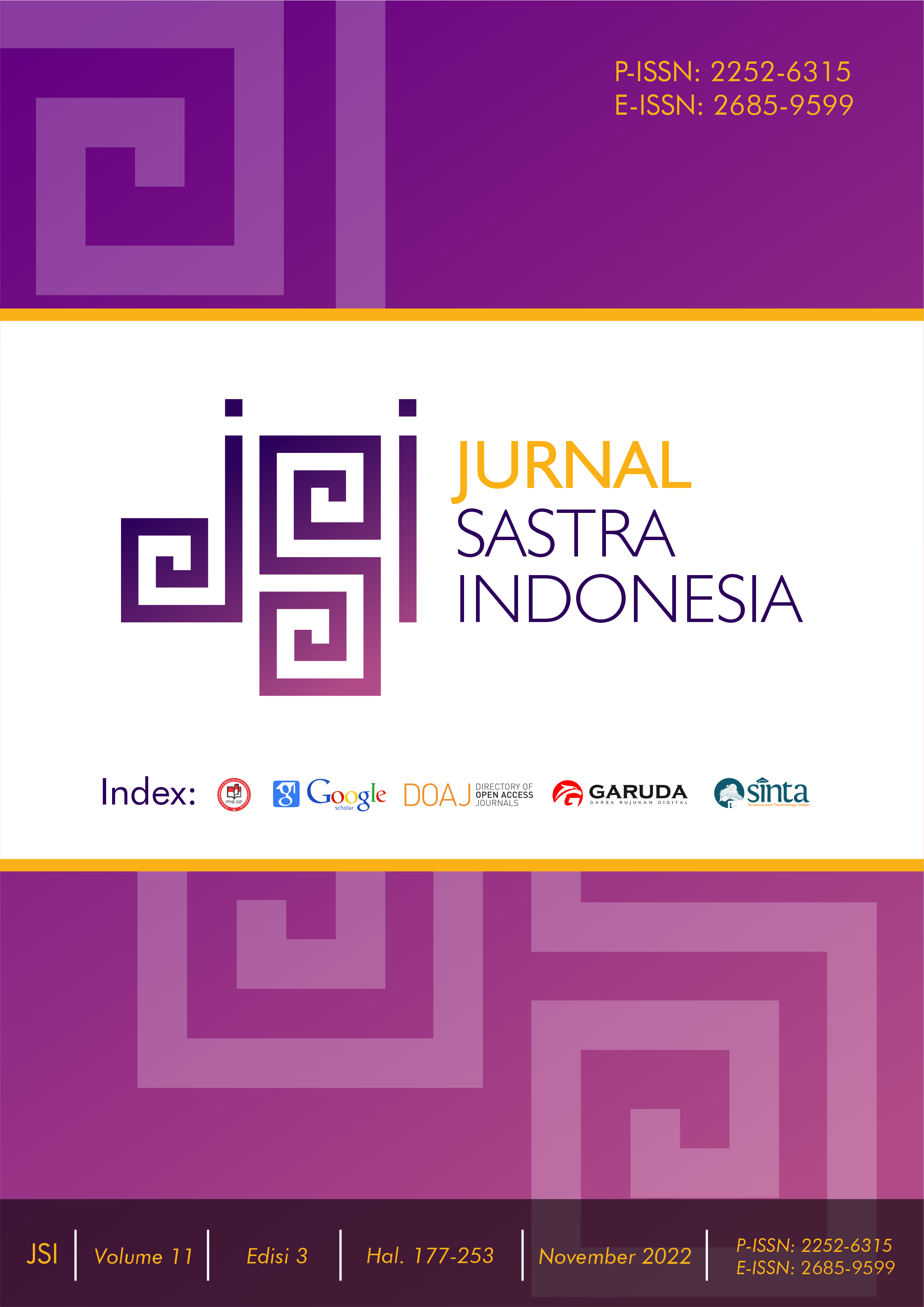The Concept Of Love In Sufism
##plugins.themes.academic_pro.article.main##
Abstract
This research aimed to reveal and explain the concept of love in Sufism. In the perspective of Sufism, God's love precedes humans' love for their God because if God has loved them, as His servants, then they can never reject His love because that love comes first from God. Love in the tradition of Sufism is a great stage (maqamat) for the man to know and get closer to God. This research uses qualitative research approach. This approach serves to interpret, express, and explain the concept of Sufism about love. It is library research, with the primary data source is the work of the Sufi-poets like Jalaluddin Rumi and Imam Al-Ghazali. The results of this research used Al-Ghazali’s notion of love which is: 1) self-love, 2) love caused by the advantages derived from the object of the beloved, 3) love caused by goodness and beauty, 4) love inspired by kindness and beauty in moral meaning, 5) love born because of munaasabah or secret affinity.
##plugins.themes.academic_pro.article.details##

This work is licensed under a Creative Commons Attribution-NonCommercial-ShareAlike 4.0 International License.
References
Al-Ghazali, A. H. M. bin M. (1992). Ihya Ulum al-Din. Beirut: Dar al-Kutub al-Ilmiyah.
Arasteh, R. (1974). Rumi, The Persian, The Sufi. London: Routledge & Kegan Paul.
Bakry, M. M. (2018). Maqamat, Ahwal dan Konsep Mahabbah Ilahiyah Rabi’ah Al-‘Adawiyah (Suatu Kajian Tasawuf). Al-Azar, 1(2).
Departemen Pendidikan dan Kebudayaan RI. (1989). Kamus Besar Bahasa Indonesia. Jakarta: Departemen Pendidikan dan Kebudayaan RI.
Faisal, S. (2010). Format-format Penelitian Sosial. Jakarta: Raja Grafindo Persada.
Farhan, I. (2016). Konsep Maqamat dan Ahwal dalam Perspektif Para Sufi. Yaqzhan, 2(2).
Fuadi, M. R. (2013). Memahami Tasawuf Ibnu Arabi dan Ibnu al-Farid: Konsep al Hubb Illahi, Wahdat al-Wujud, Wahdah al-Syuhud dan Wahdat al-Adyan. Ulul Albab, 14(2).
Hadi W.M., A. (2001). Tasawuf yang Tertindas. Jakarta: Paramadina.
Hilmi, M. M. (n.d.). Ibnu al Farid wa al Din Ibnu Arabi. Kairo: Dar al Maarif.
Khamis, M. A. (1993). Rabi’ah al-Adawiyah. Jakarta: Pustaka Firdaus.
Matthew B. Miles dan A. Michael Huberman. (2009). Analisis Data Kualitatif. (Tjetep Rohendi Rohidi, Ed.). Jakarta: UI Press.
Mustika Zed. (2008). Metode Penelitian Kepustakaan. Jakarta: Yayasan Obor Indonesia.
Nasr, S. H. (2002). Warisan Sufi - Buku Pertama (Sufime Persia Klasik dari Permulaan hingga Rumi (700-1300). Yogyakarta: Pustaka Pelajar.
Nasution, H. (1985). Islam: Ditinjau dari Berbagai Aspeknya (II). Jakarta: UI Press.
Nasution, H. (1990). Filsafat dan Mistisisme dalam Islam. Jakarta: Bulan Bintang.
Ratna, N. K. (2011). Teori, Metode, dan Teknik Penelitian Sastra: dari Strukturalisme hingga Poststrukturalisme Perspektif Wacana Naratif. Yogyakarta: Pustaka Pelajar.
Robert C. Bogdan dan Sari Knoop Biklen. (2002). Qualitative Research for Education: an Introduction to Theory and Methods. Boston: Pearson Press.
Schimmel, A. (2003). Dimensi Mistik dalam Islam. Jakarta: Pustaka Firdaus.
